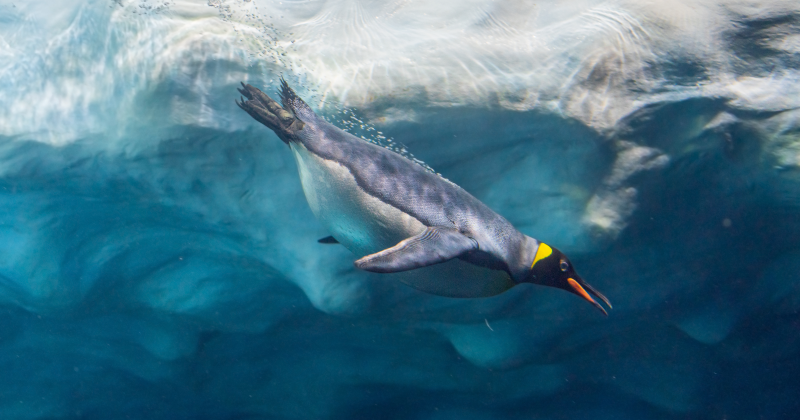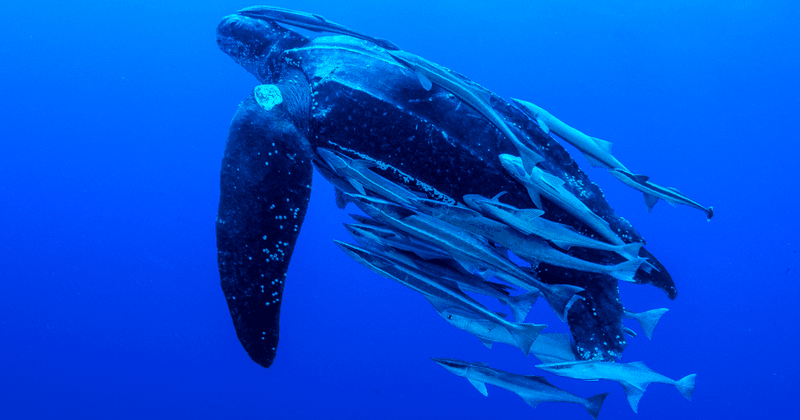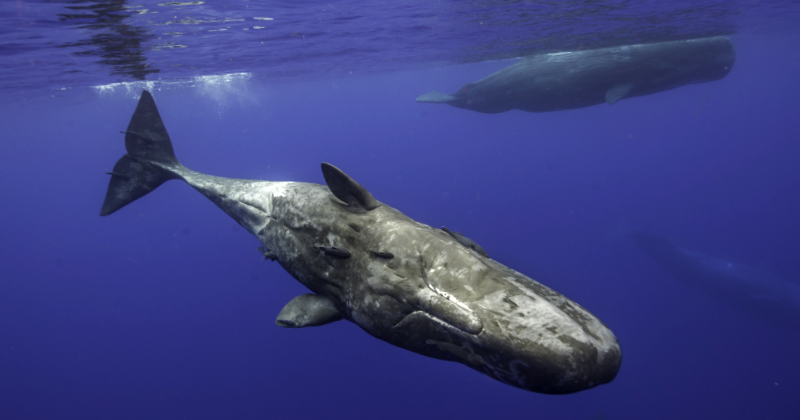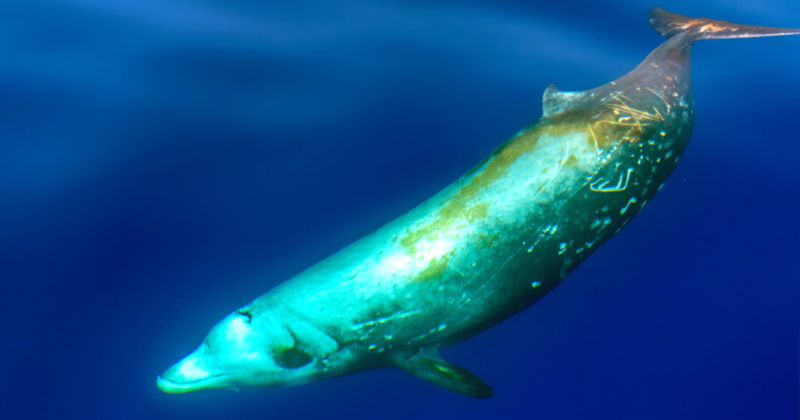Exploration of the seabed by human operators controlling remote-operated vehicles (ROVs) has yielded a plethora of astonishing discoveries. These range from snailfish residing at unprecedented depths to fur seals venturing over 150 meters (492 feet) beneath the surface. Remarkably, fur seals have been documented diving even deeper, prompting curiosity about the full extent of extreme aquatic life. Diving into the ocean's profound abyss, one encounters a diverse array of animals, encompassing mammals, birds, reptiles, and sharks.
The five deepest-diving creatures on Earth.
Emperor Penguins (Aptenodytes Forsteri) - 500 meters

Penguins are among the least agile creatures on land. Unable to take flight, these seemingly cumbersome birds waddle from one point to another, expending considerable energy for limited progress. However, their prowess in water tells a completely different tale.
While Emperor penguins may not be the swiftest swimmers, they outclass all other bird species when it comes to swimming depth and endurance. According to the University of Bristol, they can plunge to depths of 500 meters (1,640 feet) and stay submerged for as long as 27 minutes. During these deep dives, their heart rate drops significantly, slowing from 70 beats per minute to a mere 10.
Leatherback Turtles (Dermochelys Coriacea) - 1,200 meters

Their study revealed that these turtles initiate their descent with a vigorous and steep swim, then transition into a gliding phase, ultimately ascending at a leisurely pace to prevent decompression sickness. Additionally, the researchers suggested that the turtles' lower body temperature might contribute to their ability to evade the formation of nitrogen bubbles that are typically associated with the bends.
The leatherback turtle holds the title of the reptile capable of the deepest dives. According to CSIRO, these turtles can reach astonishing depths of 1,200 meters (3,937 feet). In an effort to unravel the mechanics of this remarkable feat, the authors of a 2010 research paper affixed accelerometers to female turtles during their nesting period in the Virgin Islands.
Whale Sharks (Rhincodon Typus) - 1,900 meters
.png)
Whale sharks, the largest of all fish species, surprisingly hold the record for the deepest diving fish. These gentle giants, primarily known for their surface cruising and filter-feeding behavior, were the subjects of a 2015 study that employed tagging technology to monitor their movements. This research revealed some remarkable deep dives, with the most profound reaching 1,928 meters (6,325 feet), during which the animals occasionally paused momentarily.
The study's findings noted that nearly half of these extreme dives displayed distinctive variations in their descent profiles, occurring at an average depth of 475 meters (1,558 feet). The researchers postulated that these abrupt shifts in the vertical direction might signify foraging activities within the deep scattering layer, although they acknowledged the possibility of additional functions for these extraordinary dives.
The deep scattering layer, initially misinterpreted by WWII sonar technicians as a moving seabed, is actually a massive aggregation of migrating animals, comprising millions of individuals.
Sperm Whale (Physeter Macrocephalus) - 2,250 meters

Sperm whales are frequent inhabitants of a region within the ocean referred to as the twilight zone, a dimly lit environment devoid of natural light but rich in one of their favored prey, the giant squid. Much of our knowledge about deep-sea giant squid has been gleaned from the examination of contents within the stomachs of sperm whales.
While the sperm whale doesn't hold the distinction of being the deepest-diving whale, it does hold a record among surface-dwelling animals. According to information from the University of Hawai'i, these whales have developed specialized ribs and lungs capable of collapsing under extreme pressure, thereby compressing the air into a confined space. Their heart rate also decreases as they descend to remarkable depths of 2,250 meters (7,382 feet).
Cuvier’s Beaked Whale (Ziphius Cavirostris) - 2,992 meters

The honor of being the deepest diving whale is bestowed upon Cuvier's beaked whale. These remarkable marine mammals achieved a noteworthy feat in 2020 when they broke the record for the longest dive, remaining submerged for an astonishing three hours and 42 minutes. As described by London's Natural History Museum, their ability to temporarily shut down specific organs contributes to their survival during these extended and profound dives.
Cuvier's beaked whales, while shrouded in mystery due to their predominantly underwater existence and infrequent surfacing, have gained recognition as the undisputed champions of the ocean's depths. They also set a new record for the deepest dive, reaching an astounding depth of 2,992 meters (9,816 feet).